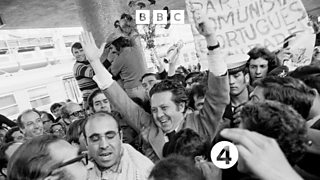Flowers of the Portuguese Revolution, by Jon Snow and Michael Rossi
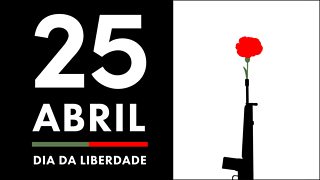
25th April 2024 marks the 50th anniversary of Portugal's "Carnation Revolution", which overthrew the authoritarian dictatorship of the Estado Novo ("New State") which had governed Portugal since the 1920s.
A largely bloodless revolution, marked by the carnations that were placed in the rifles of the soldiers, it led to the successful establishment of democracy in Portugal and the integration of more than half-a-million "retornados" – returnees – Portuguese citizens from its former African colonies.
Portugal's revolution was indeed televised, and recorded in sound. One of those who bore witness to its aftermath was journalist and former Channel 4 news presenter Jon Snow, who reported from Portugal at the time for LBC Radio.
In Radio 4's The Carnation Revolution, he remembers his time there, and tells Michael Rossi the story of what unfolded, through archive and interviews with those who organised and lived through those heady days of April 1974.
“There's no comparison. Anyone who says it was better in the old days is either drunk, doesn't know what they're talking about or has never lived through it. There's no comparison. You couldn't say anything, you had half the population – well, the slogan is half the population spoke out and the other half are informers for the PIDE [secret police].”
Freedom doesn’t give you anything to eat, it’s true – but it helps a lot.Carlos
A typically blunt – if perhaps exaggerated - assessment of Portugal before its revolution in 1974, from Carlos, a retired banker. He was a secret member of the opposition in Portugal under the "Estado Novo", or "New State", a conservative, authoritarian regime that ruled Portugal between the late 1920s and 1974. It only ever had two leaders (called President of the Council) – António de Oliveira Salazar, who would rule Portugal for most of the "new state’s" existence, until ill-health forced a replacement in 1968; and Marcello Caetano, its second, and last ruler.
“Freedom doesn’t give you anything to eat, it’s true – but it helps a lot,” says Carlos.
That freedom for many came on 25 April 1974, when a group of officers in the Portuguese army overthrew the Estado Novo in a coup d’état. It’s now 50 years since that revolution, and Portugal has changed beyond all recognition.
What drove the captains in the army to revolt? While it started with professional concerns about career and status, the sheer cost of the bloody colonial war that Portugal’s government insisted on fighting from 1961 – principally in its colonies of Angola, Mozambique and Guinea – took its toll. By the eve of the revolution 13 years later, nearly 40% of the national budget was spent on fighting the war, and nearly every family was impacted, with a brother, son, father, uncle or cousin conscripted.
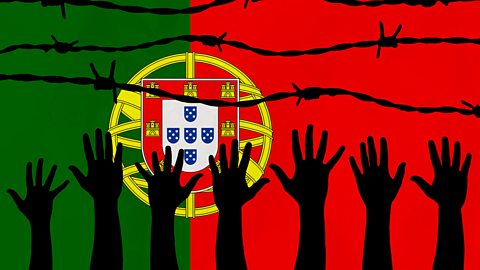
Taking to the airwaves
The first communiqué of the Armed Forces Movement who led the coup that day.
One of those was António Vitorino, a teenager in the early 1970s. One particular experience persuaded him to leave Portugal. Walking past Lisbon’s Santa Apolónia train station, he saw a member of the PIDE – the Estado Novo’s secret police – beating a disabled young man violently. The young man had been trying to earn a few escudos by helping people park their cars.
A prisoner's imagination is ten times greater than that of the jailor!Fernando
Outraged, António approached the policemen, asking him to identify himself. The PIDE officer suggested that they go to the station to do this. As António remembers to this day: "I thought I don’t care, I’ll go there and he’ll identify himself. But of course, it was nothing like that! They arrested me, accusing me of offences against authority… I spent a night there [in the prison] in anguish. I was completely disorientated and unnerved."
António was perhaps luckier than most. His uncle was a customs agent, and his father had connections, and the next morning he was released. “But I still went on trial, and it marked me, immensely. It’s what made me want to leave the country.’ He managed to do so, getting to Belgium, where was able to enrol at the Free University of Brussels.
Fernando Rosas wasn’t able to flee. A member of the Portuguese Communist party at the time, he was arrested with his brother in 1965, and was brought by the secret police to Aljube Prison right in the centre of Lisbon:
“I was arrested when I was 18, in a police operation at dawn on the 21st of January, 1965, and I ended up here, but in reality I had known this jail since I was six years old, because I came here to visit my grandfather, who was an enemy of Salazar and the Estado Novo.”
Fernando would then spend long stretches in prisons at Caxias and Peniche, where most of the political prisoners would be sent. There he would experience a form of torture in which the prisoner would be forced to stand for hours on end, without moving, and kept awake for days: “It was a completely empty room, with a Formica table in the middle, and two chairs,” remembers Fernando. “After a certain number of nights, you began to see the floor turning into bugs. The walls started to wobble; you start to hear things. Some of the sounds I thought I was hallucinating it turned out later were actually recordings by the PIDE.
“But despite this, the prisons were always universities of resistance! Because one of the things you learn when you're locked up in a political prison, which is where I was, is that a prisoner's imagination is ten times greater than that of the jailor!”
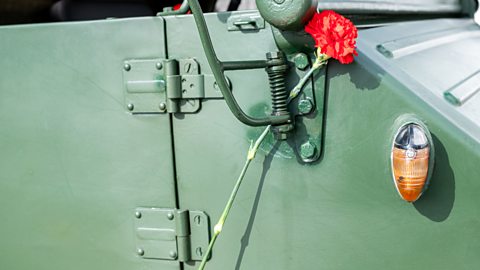
From the Â鶹ԼÅÄ Archive
A Radio 4 report of events in Portugal on 25 April 1974, with an eyewitness account.
REVOLUTION
The coup d’état by the Armed Forces Movement – the Movimento das Forças Armadas, or MFA – had been brewing for some time in the ranks of the Portuguese military. It finally went ahead at 03.00 on the morning of Thursday 25 April. Two signals on the radio were the cue to all the officers involved that the revolution was on – one at 10.55 the night before, on the Associated Broadcasters of Lisbon (Emissores Associados de Lisboa), who played the song E Depois do Adeus (Portugal’s entry for that year’s Eurovision) and the other at 20 past midnight, on Rádio Renascença – a church affiliated station – who played the song Grândola, Vila Morena (Grândola, Swarthy Town), by José Afonso, the well-known Portuguese singer. An extra clue was the pre-recorded reading of the first verse by the radio announcer, Leite Vasconcelos.
Cliff Snelling, from Northampton, was married to a Portuguese woman and was about to make his first visit to Portugal. Their flight left late from Heathrow on the evening of the 24th April, and with an unscheduled stopover in Porto, arrived in Lisbon in the early hours of 25 April: “The aircraft landed and all the runway lights, all the airport lights were out. So it had to taxi to the airport building using the landing lights. I thought, this is a bit odd. I know it's a bit late, but perhaps everyone wants to go home.”
Cliff didn’t speak much Portuguese, and early next morning went for a walk, and thought it odd that there were so many army trucks on the road. When he arrived back home he was told the news by his wife: there’s been a revolution.
The atmosphere of those days after the revolution have stuck with him vividly since then: “So when we finished our meal [later that day], we went to leave and we came out and there was a demonstration of people marching down the street with banners and chanting and singing. So what, you can see that often here, can't you? But they'd never seen anything like it before. In Portugal people were amazed.”
That party atmosphere would be severely tested in the following 18 months. Despite not being a part of the Armed Forces Movement, General António Spínola – a noted figure in the Portuguese army – was very quickly made head of the Junta of National Salvation which took control of the country after 25 April 1974. But Spínola and the officers of the MFA didn’t see eye-to-eye on the future direction of the country, now that the old regime had fallen, as Professor Maria Rezola, historian of this period, recounts: “The first months after the 25th of April, between May and September of 1974, were precisely the long confrontation between these two political actors. On the one hand, the captains [of the Armed Forces Movement], now gathered in the coordinating body of the MFA; on the other hand, Antônio Spinola and those wanting a more gradual transition.
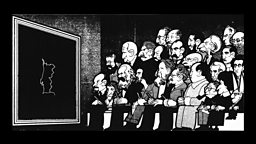
“Spinola's departure took place at a time when decolonisation was already irreversible, in the autumn of 1974. On 11 March 1975 there was a new attempt by Antônio Spinola to promote a coup d'état and slow down the pace of the revolution. The opposite will happen. The revolution would accelerate. It was in this context, for example, that the agrarian reform laws were published and the banks and insurance companies were nationalised.”
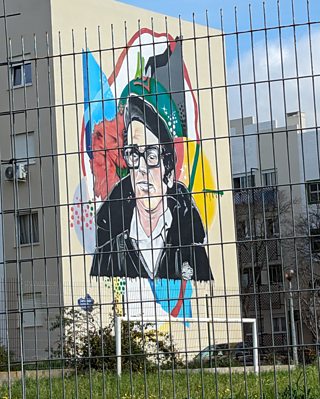
Dr. Mario Bernardo was a surgeon, who had served in the colonial war in Mozambique. He recalls being interviewed by the secret police, the PIDE, several times as a student. By the time of the revolution in 1974, he had already qualified, and was working at Lisbon’s St. Maria hospital. The period between 1974 and 1976 would be chaotic: “In Santa Maria, we only discussed politics. The hospital of '74, '75 and the beginning of '76 was a laboratory of political activities where health was really very much secondary and the environment was so complicated.”
For Ana Bela, a civil servant and friend of Dr. Bernardo’s who would go onto work on Portugal’s introduction of the Euro, the contrast between the pre-and-post revolutionary periods was striking: “Before, everything was very hierarchical – to do anything, you had to ask. After, we began to open up to doing things in a different way, which could be very much better, depending on the environment you were in.”
1975 would be a year of competing visions for the new Portugal. Elections were held for the Constituent Assembly that would decide on a new constitution, to replace that of the old Estado Novo. That summer there were riots and unrest and in November there was another coup attempt, this time to establish Portugal as a Communist state. It failed, but Portugal’s allies were worried, as Professor Rezola describes it: “Immediately after the overthrow of the dictatorship, Antônio Spinola designated Mário Soares as the first emissary of political change in Portugal.
"And one of the places where Mário Soares goes is Downing Street – this relationship with the British remained relatively stable throughout the process, but it intensified from the summer of 1975. And we find Mário Soares in direct talks with James Callaghan to think about a possible solution to a civil war.
"The plan that was drawn up envisaged that, in the event of the radical left-wing forces, in the event of the communists taking power in Portugal, the socialist and moderate forces would take refuge in the north of the country, where, as in the days of liberalism, the British would send human and material military support to enable the reconquest of the national territory.”
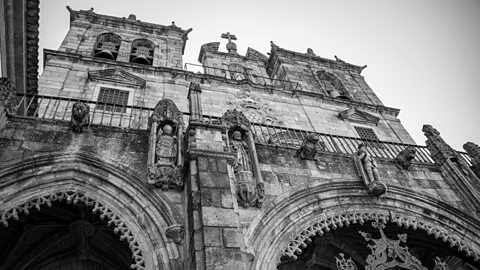
Jon Snow reports for LBC Radio in August 1975, on unrest in the Portuguese town of Braga.
A year after the overthrow of the old dictatorship, there was still much civil unrest.
Portugal agreed a new Constitution in 1976, and had both its first elected President (António Ramalho Eanes), and the first constitutional government, under Socialist Party leader Mário Soares. The country embarked on a clear democratic path. But challenges remained, as Basilio Horta, one of the founders of the centre-right CDS party, who collaborated with the Socialist Party, recalls: “I was in government in 1978 with the Socialist Party and at that time the difficulties were enormous, enormous, because we didn't have any money, everything was paid for in dollars, to buy essential goods, right? So we went through some very, very difficult times, but we got through. Today, our problems are problems of development and growth. Back then they were problems of survival.”
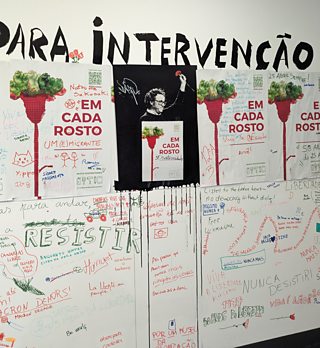
After the revolution, there were attempts to bring the PIDE, the secret police to justice, at least at the senior levels. Some fled to South Africa, or other countries that could use their particular skillset; others ended up in prison. Former PIDE prisoner, Fernando Rosas, has mixed feelings about this: “Unlike Spain, where there was no justice for anyone, there was political justice, but very generous political justice, so to speak. I don't think it was justice commensurate with the seriousness of the crimes that had been committed. I mean, a man who dedicates his whole life to beating people up, torturing them with electric shocks, not letting them sleep! And stalking and listening for years and years. To get two years in prison at the end of that time is ridiculous, isn't it?”
Portugal on this 50th anniversary of its revolution has just elected a new centre-right government. The elections saw a surge in support for the far-right party "Chega" (Enough), under its leader André Ventura. According to Filipe Ribeiro de Meneses, a historian and biographer of Salazar, “it’s a shock to many in Portugal; but I don't think that it's out of a desire to return to the new state or to reimpose the values of Salazar or even Caetano. I think there are many specific reasons why 50 years later, Portugal, like so many other countries across Europe and the Western world in general has a far right party doing well; in many ways we're late to that particular development in Portugal.”
Both Professors de Meneses and Maria Rezola don’t believe that there’s any great nostalgia for the old regime, and indeed recent polls seem to bear that out, with two in three Portuguese considering the revolution as being the most important day in the country’s history.
That day of 25 April 1974, the Guarda Nacional Republicana – the National Republican Guard – were the last redoubt for Estado Novo leader Marcello Caetano, who was holed up in the Carmo barracks in the historic centre of Lisbon. The GNR – to use their Portuguese initials – remain a force in Portugal today. That association with the old regime was ignored at first, as Major Antonio Cardoso explains: “A lot of people didn't want to talk about that period in history, either for good or for bad; it wasn't a topic that was discussed. But from 2005 onwards, that changed, and from that moment on, the importance of the twenty-fifth of April, as a historical fact in Portuguese history and also in the history of the National Republican Guard, began to enter the institution in a normal way. So much so that every year since 2007 we've opened the Carmo Barracks to the public.”
Marco is a Portuguese journalist living in London, whose father fled to France to flee the old regime. Too young to remember the revolution, nevertheless it remains hugely important to him: “The revolution means so much to so many of us and it saddens me to see that perhaps what the dictatorship meant and what the revolution meant seems to have been forgotten by some people. If I were in Portugal still today I guarantee you that I would still be going out on the 25th of April to celebrate the revolution.”
For Joana, a museum worker in her 30s in Lisbon, she sees herself as a "granddaughter of freedom", for whom the message of the revolution is vigilance:
“Nowadays we can feel that things are not guaranteed – the right to speak, a proper salary, housing, all of that LGBT rights, immigration rights – all of those things feel like they’re in a delicate situation right now. So I think it's important to keep talking about how important it is to keep fighting for the values of the revolution, because easily we can go back to dark times.”
-
![]()
Listen to: Portugal’s Carnation Revolution
Journalist and former Channel 4 news presenter Jon Snow, remembers Portugal's 1974 revolution, which he covered as a young man.
